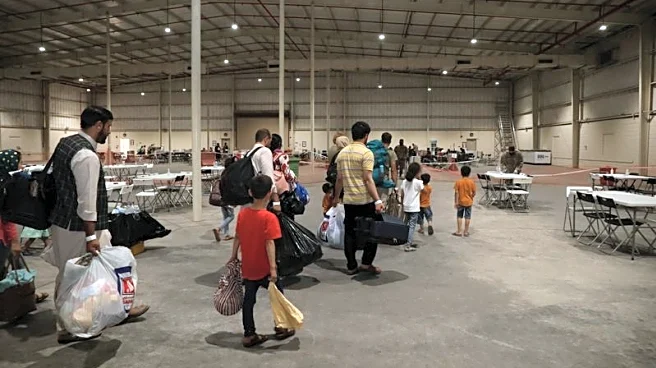What's Happening?
Fiscal policy involves the use of government spending and taxation to influence the economy. Governments typically use fiscal policy to promote strong and sustainable growth and reduce poverty. The role
and objectives of fiscal policy have gained prominence in recent crises, as governments have stepped in to support financial systems, jump-start growth, and mitigate the impact on vulnerable groups. Fiscal policy can be expansionary, increasing aggregate demand through government spending, or contractionary, reducing demand via lower spending.
Why It's Important?
Fiscal policy is a critical tool for managing economic cycles and promoting growth. By adjusting government spending and taxation, policymakers can influence aggregate demand and stabilize the economy. In times of economic downturn, expansionary fiscal policy can stimulate growth by increasing government spending and reducing taxes. Conversely, contractionary fiscal policy can curb inflation by decreasing spending and increasing taxes. Effective fiscal policy can lead to improved economic performance, increased employment, and enhanced social welfare. It is a vital tool for governments to address economic challenges and achieve long-term development goals.
What's Next?
Future fiscal policy strategies may focus on balancing government budgets and ensuring sustainable public finances. Policymakers may prioritize investments in infrastructure, education, and healthcare to stimulate economic growth and improve social welfare. Tax reforms could be implemented to broaden the tax base and enhance revenue collection. Governments may also explore innovative fiscal measures to address emerging challenges such as climate change and technological advancements. Continuous monitoring and evaluation of fiscal policy will be essential to ensure its effectiveness and adapt to changing economic conditions.
Beyond the Headlines
The ethical implications of fiscal policy are significant, as it can impact wealth distribution and social equity. Cultural factors also play a role, as fiscal policy can shape societal values and priorities. Legal challenges, such as compliance with international agreements, can affect the implementation of fiscal strategies. Long-term shifts in economic structures may result from fiscal policy, impacting employment patterns and social stability.











